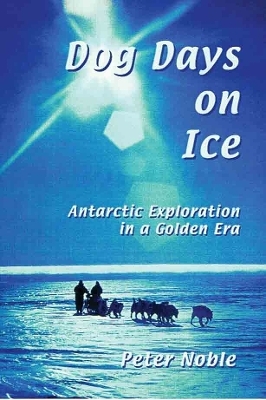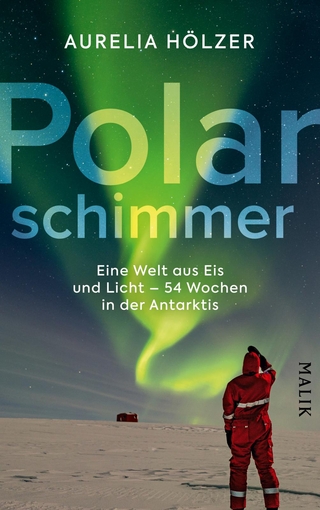
Dog Days on Ice
Reardon Publishing (Verlag)
978-1-873877-89-0 (ISBN)
- Titel nicht im Sortiment
- Artikel merken
"Dog Days on ICE Antarctic Exploration in a Golden Age" is written by Peter Noblei. It surveyed the grey hair and balding heads, the lined faces, the stooped or halting walk of some, and the old protest song that came to mind: 'Where have all the young men gone?' It was October 2006 and the British Antarctic Survey Club was celebrating fifty years of 'Halley', the remote research base on the Antarctic continent. Along with four hundred other ex-Halley residents, I went along to the two day bun fight and chin wag noting the somewhat more luxurious accommodation than we had ever experienced 'down south'. It was a wonderful gathering, meeting near forgotten friends, updating about what's happening in the twenty first century (that made us 1960s boys feel old!), but above all the inevitable reminiscences. As I listened and related my own stories, and particularly as I surveyed those ageing friends, I realized that in all too few years, an exciting and fascinating period of British exploration was to be forgotten.
True, there is an extensive archive at the British Antarctic Survey offices in Cambridge, but virtually all of this consists of formal reports; little is recorded about day to day living at Halley, of the now extinct experience of working with dogs, of camping on long expeditions, of the cold, of how it all affected the men who lived there. My own time and work at Halley built on the efforts and dedication of those who established and maintained the base in the years before our cohort arrived; and particularly on those who undertook the many early field trips. I was destined and privileged to work with the huskies, those lovely animals that featured prominently in explorations at Halley for scarcely a decade. From the humble beginnings of 'Stumpy', the base pet in 1958, an importing and breeding programme was started in 1962 that produced a peak of 69 animals (adults and pups) in 1968 but by 1972 huskies had been internationally declared an 'alien species' and should be discontinued. I leave it to the reader to imagine what discontinued meant. A couple of dogs, demoted once more to base pet status, managed to survive the decade but the great days of dog travel were over.
That other alien species 'man' with his increasingly polluting tractors and aircraft was however deemed essential, but one is left whimsically wondering how many billion husky farts equals one minute of a jet engine exhaust! The use of Dogs in Antarctica were I believe the golden age of exploratory expeditions undertaken by the British Antarctic Survey and this book presents a personal account of an amazing, exciting and life changing experience.
Peter Noble was born in 1943 in the manufacturing town of Pudsey, Yorkshire. After attending the local grammar school (where his most significant achievement was joining the A"Adventure ClubA" a year before being eligible) he drifted into Teacher Training College and three years later, back into school. His first year in a London comprehensive convinced him that he was in need of something new, something completely different and preferably something outdoors. Teenage climbing experience on his native Yorkshire crags had led to climbing holidays in many parts of Britain plus Norway and the Alps so he applied for and secured a job with the British Antarctic Survey as a General Assistant/Mountaineer. In 1966 he sailed south for a two year tour of duty at Halley Bay, one of six British survey stations and the only one to be built on floating ice.During the building of a new base at Halley Bay, new skills were added to his repertoire - electrician, plumber, decorator, carpenter, baker - but it was driving dog sledges over the ice cap that fired his imagination. After learning the basic skills he and three colleagues were left several hundred miles from base, with two dog teams, to reconnoitre a route to the remote Shackleton Mountains.The following year Peter was invited to lead a tractor expedition along the reconnoitred route, an expedition that proved to be the longest and heaviest tractor journey ever undertaken by the British Antarctic Survey.On return to England, Peter never did go back to the classroom, at least not the indoor one, preferring to work in outdoor education in the Lake District, Snowdonia and finally heading up a then new Outdoor Pursuits Centre in Derbyshire. On formal retirement he travelled widely - Peru, Zimbabwe, Mexico, Central Australia, Tibet, Namibia - either with his wife Jenny or leading young people's expeditions. Peter and Jenny now live in Marlborough, Wiltshire.
| Erscheint lt. Verlag | 1.12.2008 |
|---|---|
| Reihe/Serie | Antarctic |
| Zusatzinfo | 61 colour photos maps and drawings |
| Verlagsort | Cheltenham |
| Sprache | englisch |
| Maße | 156 x 234 mm |
| Themenwelt | Reisen ► Reiseberichte ► Welt / Arktis / Antarktis |
| ISBN-10 | 1-873877-89-7 / 1873877897 |
| ISBN-13 | 978-1-873877-89-0 / 9781873877890 |
| Zustand | Neuware |
| Haben Sie eine Frage zum Produkt? |
aus dem Bereich


